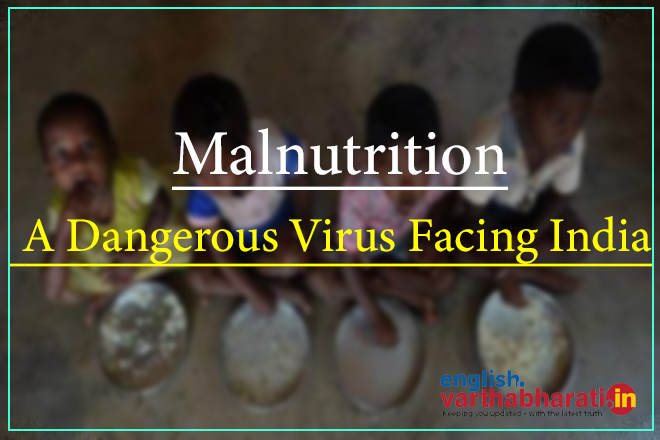Even before the Coronavirus pandemic hit us, India was one among the most malnourished countries. It was expected that Covid-19 would deal a death blow to the poor in India that has one of the worst development indicators. The situation got worse when the government imposed a stringent lockdown last year without making adequate preparations.
Now, the government is making unsuccessful attempts to restore India’s dignity and economy by promising free vaccine and rations. In a recent paper, economists Jean Dreze and Anmol Somanchi highlighted the extent of food deprivation experienced by the poor after the 2020 lockdown in India by analyzing survey data. All economic activities came to a standstill in the country after the Covid-19 lockdown that was regarded as the toughest one in the world. It is now clear that the lockdown impacted income and employment generation. The survey has revealed that there is a huge fall in income of people after the lockdown when compared to their pre-lockdown income.
Non-agriculturist participants of the survey reported that their income was Rs 6,858 in March 2020 that fell to Rs 1,929 in May 2020 and remained the same till September 2020. Their days without work that was at 7.3 per cent in the beginning of March 2020 shot up to 23.6 per cent in the first week of May 2020 and remained high at 16.2 per cent till September 2020 first week. About 52 per cent of the people who had jobs before the lockdown lost their jobs in May 2020 and the breadwinners of the remaining 20 per cent families had their jobs but their income had reduced substantially. Dreze and Somanchi argue that the impact of the lockdown on the Indian economy is not temporary. They show that it is unlikely that the income and jobs would be restored to their pre-lockdown levels.
Similar to income-related issues, surveys have also drawn attention to the increase in food insecurity. About 53 per cent to 77 per cent participants in the survey have stated that their food consumption has reduced now when compared to pre-Covid days. This situation has not changed even after the lockdown was lifted, they said.
The survey conducted by the Centre for Sustainable Employment of Azim Premji University is more worrisome. It says that around 60 per cent of the people surveyed have stated that their consumption of food between September-November was lower when compared to their food intake before the pandemic.. The situation of those living in abject poverty is far worse. A substantial number of migrant labourers consumed less than two meals a day in May 2020. Similarly, according to a study conducted by Pradhan, a not-for-profit organization, half the laborers of the unorganized sector in rural areas are consuming less food than what they used to have earlier.
The fact that there has been a reduction in nutrition levels in the food consumed during the lockdown is equally worrying. Though there was no difference in the amount people spent on pulses, there was a huge fall in the amount spent on consuming protein-rich food such as eggs, meat, fish, and different types of fruits. There was a 50 per cent reduction in the amount that people spent on meat and fish
In the midst of this, the Indian Public Distribution System that provides food grains for free or at low prices emerged as a ray of hope. During the lockdown, the Centre and state governments announced supply of free food grains and increased the quota of food grains. About 89 per cent of Indians obtained food grains under the PDS and an equal number of Indians escaped hunger by receiving free food grains as part of different schemes during the lockdown.
With Covid-19 second wave raging this summer, many states have implemented lockdowns. But the government is unable to prevent the kind of humanitarian crisis that the country faced last year. The relief measures announced for lockdown is not yielding results as expected. Though the amount of financial aid provided has been the same as last year, it is not reaching the beneficiaries. Due to problems in the public distribution system at the state levels, it has not been possible to distribute free food grains provided by the Centre. The immediate need is for the Centre and state governments to coordinate and work in tandem to ensure efficient distribution of food grains and financial aid and make sure that crores of Indians are saved from the crisis. The onus is on the government to uplift the country after lockdown, for which preparations must start immediately. In the fight against infectious diseases, nutritious food is as much important as vaccines. The government should also consider the danger of infectious diseases that malnutrition can precipitate in the future.
Let the Truth be known. If you read VB and like VB, please be a VB Supporter and Help us deliver the Truth to one and all.
Kalaburagi: Four men have been arrested in Kalaburagi on charge of hacking a man with lethal weapons and pelting stones at him under the limits of Station Bazaar Police Station recently.
According to police sources, Anand Jalak Shinde (34), Ashitosh Jalak Shinde (30), Imran Mehboob Sheikh (28) and Sohaib Anwar Qureshi have been arrested. The men are accused of the brutal murder of Syed Mehboob, a resident of Station Bazaar Upper Line Hamalawadi in the city.
An FIR was filed by the Station Bazaar Police Station based on a complaint given by Syed Ismail, father of the deceased Syed Mehboob.
Following quick probe, the police team successfully arrested the suspects within 24 hours. The arrested men were produced in court and have been sent to judicial custody.
The City Police Commissionerate has appreciated in an official release the police team’s quick solving of the murder case and arrest of the four men accused of murdering Syed Mehboob.





